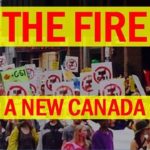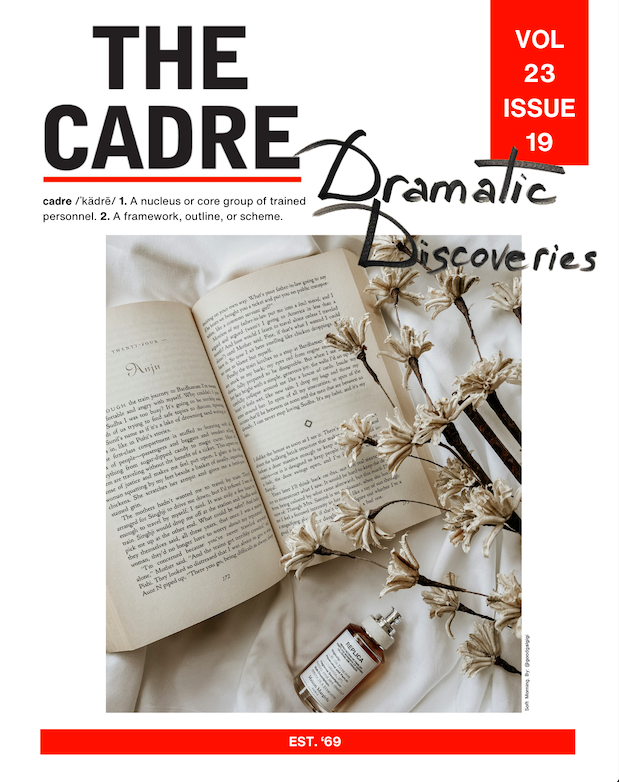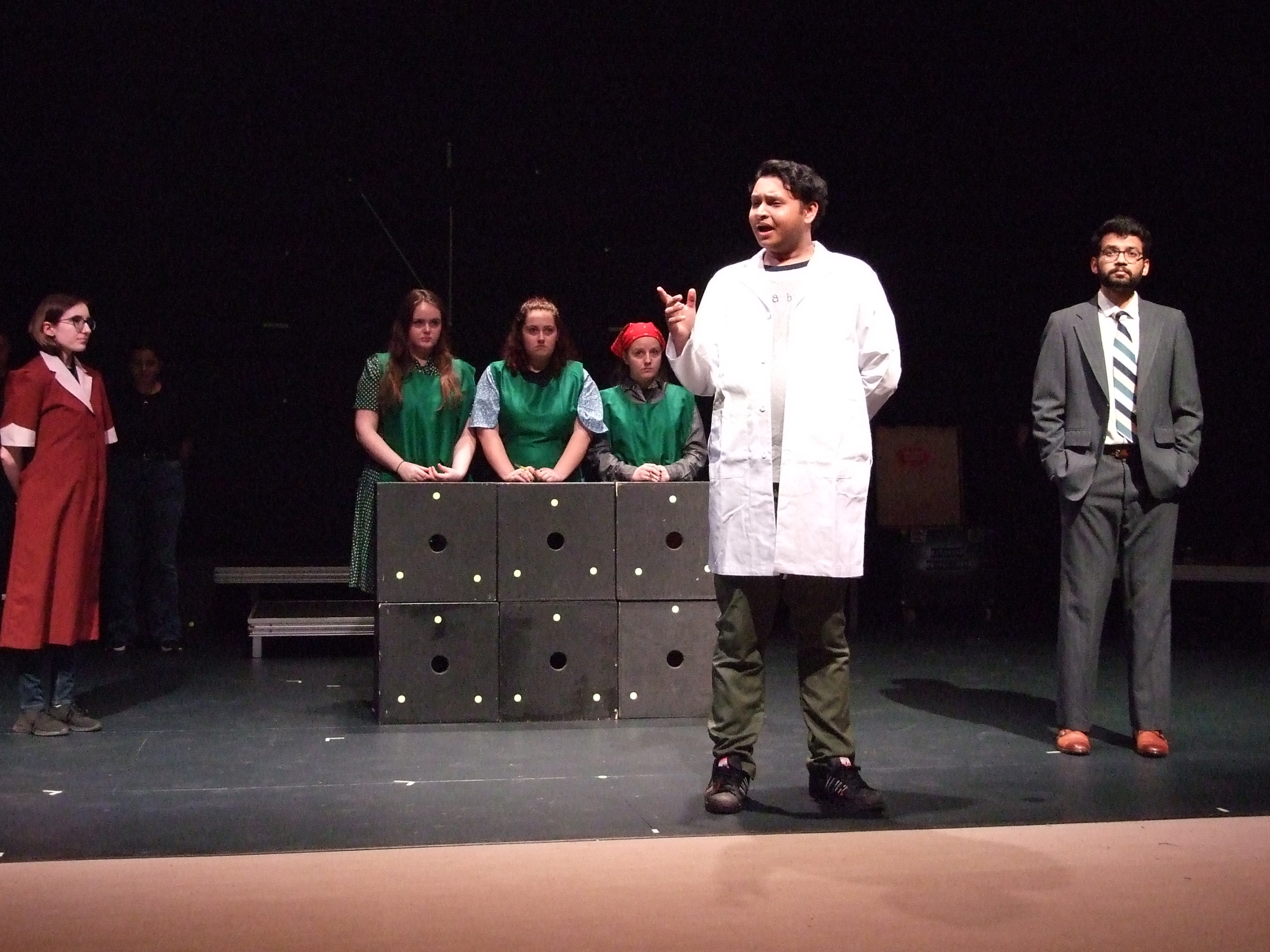By: Enesi Majebi
Ever since the controversial Bill C-51 was given royal assessment on the 18th of June 2015, it has been met with vehemently negative response from many areas. Tom Mulcair, Leader of the New Democratic Party of Canada, as well as the Leader of the Official Opposition in Canada called the bill “dangerous and ineffectiveâ€. It has even been condemned by the United Nations who have asked for it to be repealed.  Many have said that it would go beyond government bill passed after 9/11 as the 5th section makes information obtained through torture applicable in court. The Canadian arm of Amnesty International indicated that the anti-terrorism bill could be used to target environmental activists and aboriginal protesters, or any other form of protest without an official permit or court order.
According to the Government, the Bill C-50 also known as the known as the Anti-terrorism Act 2015 is designed to ‘encourage and facilitate information sharing between the Government of Canada institutions in order to protect the country against activities that can threaten public securityâ€.
The first part of the Bill enacts the Security of Canada Information Sharing Act which authorizes institutions of the government to disclose information to other institutions of the government that have jurisdiction or responsibilities regarding activities that undermine the security of the country. The second part is a new framework for identifying and responding to people who may engage in activities that can pose a threat to transportation or commit terrorism acts while flying. Â The third part guarantees to keep the peace relates to terrorist activity or offenses, it makes knowing or promoting terrorist activities an offense, it also gives the government rights to seize information it deems as terrorist propaganda and it also increases protection of witnesses. The fourth part of the bill permits the Canadian Security Intelligence Service (CSIS) to take any measures which they see fit, within and outside Canada to reduce threats to the security of the country. And the fifth and final part gives the Government institutions the right to provide or exempt any information they wish from certain proceedings.
In the wake of this, the People’s Social Forum in conjunction with the Council of Canadians organized a protest march and forum on the 12th of September 2015. The protesters met at the Farmer’s market at 1:00 pm and marched up to the University for the Forum in the Don and Marion McDougall Hall, Grant Thornton Lecture Theatre at 2:00 pm.
Leo Broderick, the moderator and chair of the PEI chaptor of the Council of Canadians, began the forum by describing the bill and recounting a personal experience he had in 2003. Travelling to Miami to protest a conference about spreading free trade throughout the Americas, he was pulled aside while going through customs. Customs officers then revealed that they knew about some of his activities, then he was interrogated about his motives for going to Miami. The protests in Miami were successful but before boarding in Logan Airport his name was called again. This time he did not go as he knew his activities were being followed. Leo was then brought into a room by two men who he assumes were US security officers and interrogated. He told the story to show how serious Bill C-51 is and how it would impact travel and security in Canada, explaining, “this bill will increase names on list” (i.e. No fly, and similar)â€. A film, “Amnesty International and Bill C-51†was then shown.
After the film, Leo introduced the speakers. The first speaker, Bob Thompson, recounted his personal experience in the early seventies. He spoke about being denied security clearance on a project for the ministry of agriculture because his activities were monitored; activities such a purchasing a magazine and holding it in a manner that was apparently similar to one used in spycraft and espionage. He also spoke about his experience in Ottawa where the police turned against peaceful protesters who were staging a peaceful protest outside the G20 summit. Bob made the point that the intelligence services in the country are not set up in a way as to protect the rights of the individual and that the bill would give them the clear ability to define rights which do not correspond to the Charter. He ended his speech by saying that the security services have the mindset that they can fabricate anything they want about anyone without any proof and without repercussion. Bill C-51 would worsen the already declining situation.
The second speaker, Lori Mackay, spoke from the perspective of the labour movement, being the President of CUPE PEI. She began with saying that the bill is based in fear because our every move and word will be tracked and monitored. She expressed her feeling that the government had completely missed the mark with the bill saying, “It is a legislation that is put in to fix a problem that we caused for ourselves or that doesn’t exist. They say we are being attacked, but by who?’ According to her, the labour movement would be put in a bad position under the bill because their activities would be categorized in a negative way. She spoke on the importance of an organized structure for workers’ rights, saying that the conservative party is making it difficult for unions to organize and function through their legislations.
She also talked about the dreams that the labour movement had for the country, a dream which included; a more efficient health care system, employment insurance systems that work for the unemployed and all Canadians, job security that goes beyond the tar sands in Alberta, abolishment of the corporate greed with the 1% having all the power, and a government that’s transparent and forward thinking. She closed by encouraging voting, saying “It is the only thing we can do to realize these dreamsâ€
The third speaker, Dan Doran, admitted that he was not prepared to speak about the bill, but instead spoke about his work with refugees and refugee sponsorship. According to him, he is a facilitator for applications of refugees from around the world. He expressed his unhappiness at the reductions of refugee acceptances since the 90s. He also expressed disdain over the long and bureaucratic process of the refugee sponsorship program and how unresponsive the government has been to the immediate needs of the Syrian refugees. He closed by expressing how fulfilling the movement was.
The speeches were proceeded with an information session where the guest speakers were asked questions about immigration and balance between civil disobedience and protection of activists. Dan addressed the question of immigration by saying that it is appalling that, in 2015, the Canadian government does not have a clear policy on crisis handling because its focus is on the wrong areas. “Folks don’t understand the need for more citizens to grow the population and the economy,†he said. He also touched on the topic of professional refugees, stating that the skills of professionals who come to Canada are being wasted, as the government does not have a more efficient way to equate the standard of their degree with Canadian degrees.
Bob weighed in on the second question touching on the importance of being heard and being safe.  He also said that we need to think more about civil disobedience, focusing more about organized activism, not just individual participation.  Lori also touched on the topic of conveying the direct impacts that these things have on individual people, saying that we should have one on one conversations with people and exercise patience. She ended saying “We need to be aware of the fact that the system is structured against us. We need to be prepared to support each otherâ€.
The forum closed with final statements from the speakers. Bob touched on de-growth and giving people their own voice and tackling problems as a collective unit. Lori urged us to leave with the idea that people are paying attention and we have to help by being as clear as we can be. It’s up to make people understand the issues that are affecting us as a nation. She also urged us to go out and vote and Don closed with saying that we have a unique opportunity locally to convey our message to the seemingly new coalition government to be born out of the upcoming elections.  It was an eventful and enlightening day that served to inform and educate while also providing assurance in a bright future for the country.









